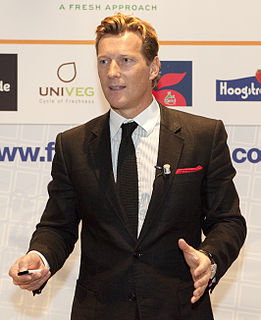A Quote by Neil Gaiman
Making fiction for children, making books for children, isn't something you do for money. It's something you do because what children read and learn and see and take in changes them and forms them, and they make the future. They make the world we're going to wind up in, the world that will be here when we're gone. Which sounds preachy (and is more than you need for a quotebyte) but it's true. I want to tell kids important things, and I want them to love stories and love reading and love finding things out. I want them to be brave and wise. So I write for them.
Quote Topics
And Love
Be Brave
Because
Books
Brave
Changes
Children
Fiction
Finding
Forms
Future
Going
Gone
Important
Important Thing
Important Things
Kids
Learn
Love
Love Stories
Make
Making
Money
More
Need
Out
Read
Reading
See
Something
Sounds
Stories
Take
Tell
Than
Them
Things
To Love
True
Up
Want
Which
Will
Wind
Wise
World
Write
Related Quotes
If you want to liberate someone, love them.Not be in love with them - that's dangerous. If you're in love with your children, you're in their lives all the time. Leave them alone! Let them grow and make some mistakes. Tell them, "You can come home. My arms are here - and my mouth is too." When you really love them, you don't want to possess them. You don't say, "I love you and I want you here with me."
I want to see children curled up with books, finding an awareness of themselves as they discover other people's thoughts. I want them to make the connection that books are people's stories, that writing is talking on paper, and I want them to write their own stories. I'd like my books to provide that connection for them.
Kids not only need to read a lot but they need lots of books they can read right at their fingertips.They also need access to books that entice them, attract them to reading. Schools...can make it easy and unrisky for children to take books home for the evening or weekend by worrying less about losing books to children and more about losing children to illiteracy.
If you want your children to relate to the culture you live in, if you want to train them outside of the general system, you have to tell your children that ordinary children tend to say things like 'I can run faster than you; I can draw better than you; I know things you don't know'. You have to tell them what normal children are like. Normal children are messed up and you have to tell them about that. But if you instruct your child in high correlation with the physical world, they won't be able to relate with normal children. Normal means mixed up as I use the word.
We don't think much about how our love stories will affect the world, but they do. Children learn what's worth living for and what's worth dying for by the stories they watch us live. I want to teach our children how to get scary close, and more, how to be brave. I want to teach them that love is worth what it costs.
We have an obligation to read aloud to our children. To read them things they enjoy. To read to them stories we are already tired of. To do the voices, to make it interesting, and not to stop reading to them just because they learn to read to themselves. Use reading-aloud time as bonding time, as time when no phones are being checked, when the distractions of the world are put aside.
If you like to make things out of wood, or sew, or dance, or style people's hair, or dream up stories and act them out, or play the trumpet, or jump rope, or whatever you really love to do, and you love that in front of your children, that's going to be a far more important gift than anything you could ever give them wrapped up in a box with ribbons.
What we want to do is make sure they're not totally kept from what's going on in the world. We don't want to seclude them but, at the same time, we want them to have wisdom and discernment to make wise decisions - to protect them through the love of the family and the value that we have in one another and in the Lord and our time in Scripture. Finding that balance is not an easy task but it can be done.
A house without books is like a room without windows. No man has a right to bring up his children without surrounding them with books, if he has the means to buy them. It is a wrong to his family. He cheats them! Children learn to read by being in the presence of books. The love of knowledge comes with reading and grows upon it.

































